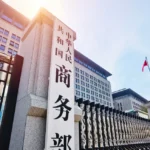The Bank of England has reduced its main interest rate by 0.25 percentage points to 4.25%, marking its fourth cut since it began easing rates in August of last year. The decision comes as UK inflation continues to fall, allowing for a gradual shift in monetary policy.
In its official statement, the Bank highlighted “substantial progress” in tackling inflation over the past two years. However, it also expressed concern over growing uncertainty in global trade, spurred by recent tariff measures introduced by US President Donald Trump. These tariffs have sparked a trade war, raising fears about global economic growth.
The Bank acknowledged that while the direct effects on the UK may be limited, the wider economic climate could weigh on the British economy. Minutes from the Bank’s latest policy meeting indicated that officials believe the ongoing global trade tensions could drag on UK growth.
Speaking to reporters, Bank of England Governor Andrew Bailey welcomed reports of a possible UK-US trade agreement expected to be announced later in the day. He emphasized that such deals could help reduce economic uncertainty, noting that the UK, as an open economy, is vulnerable to the effects of international trade disruptions.
Bailey previously warned about the potential for a “growth shock” in the UK as a result of US tariffs. In a CNBC interview, he said Trump’s trade policies have injected a high level of uncertainty into the global market, discouraging both business investment and consumer spending.
Economic indicators already show signs of strain. In April, a key survey of UK businesses—the PMI index—showed a decline in output, hitting its lowest point since November 2022. Around the same time, the International Monetary Fund downgraded its economic growth forecasts for several nations, including the UK, citing the negative effects of US tariffs.
Bailey also noted that these tariffs could indirectly benefit the UK by lowering inflation further, potentially creating more room for interest rate cuts. For example, if Chinese goods targeted by US tariffs are redirected to the UK at lower prices, increased market supply could drive prices down through greater competition.














